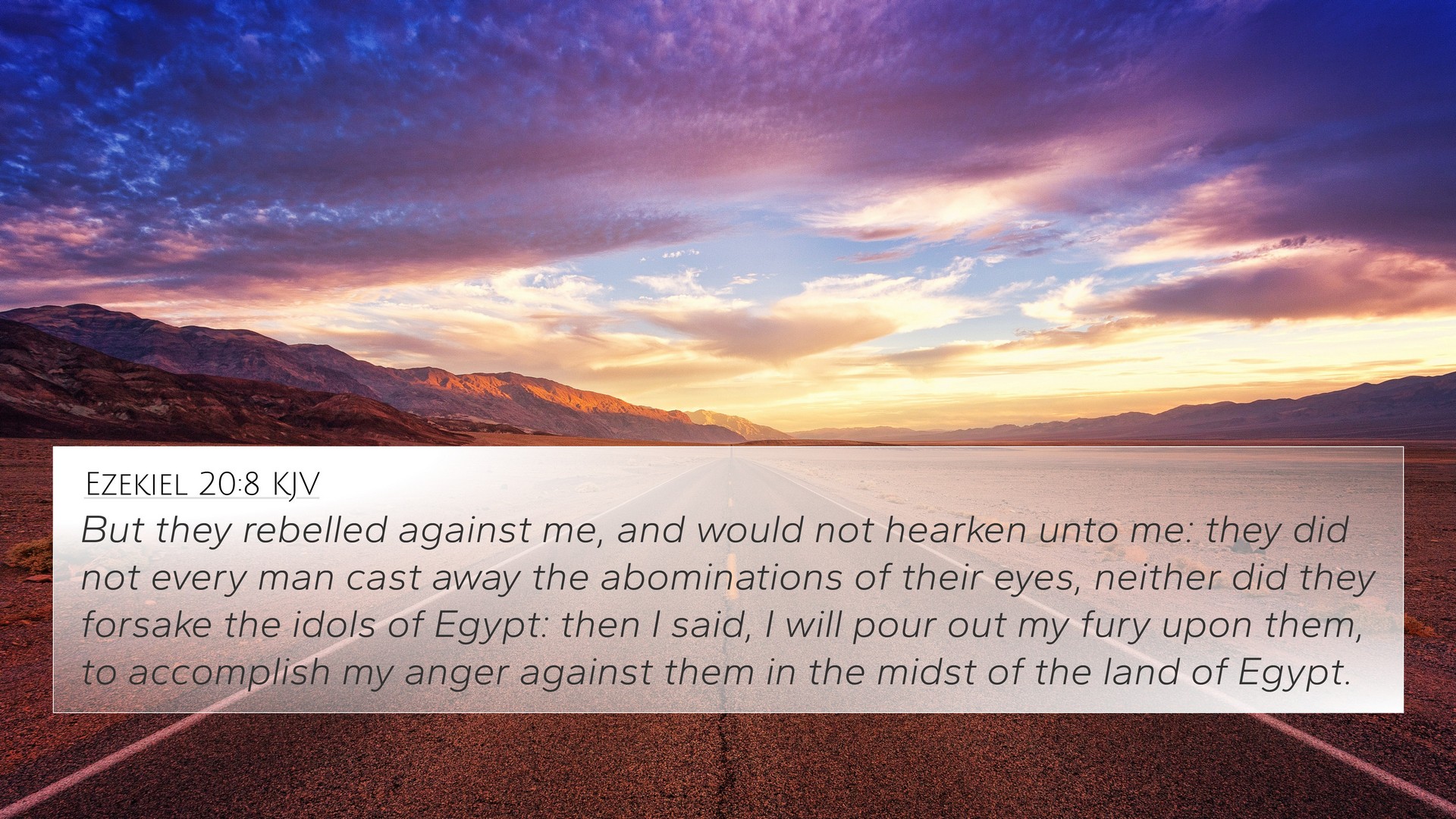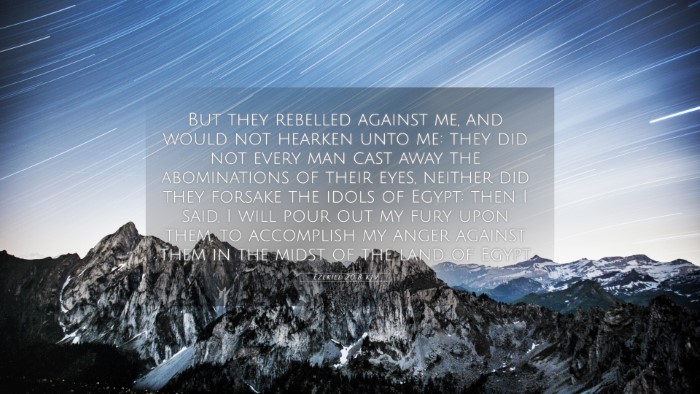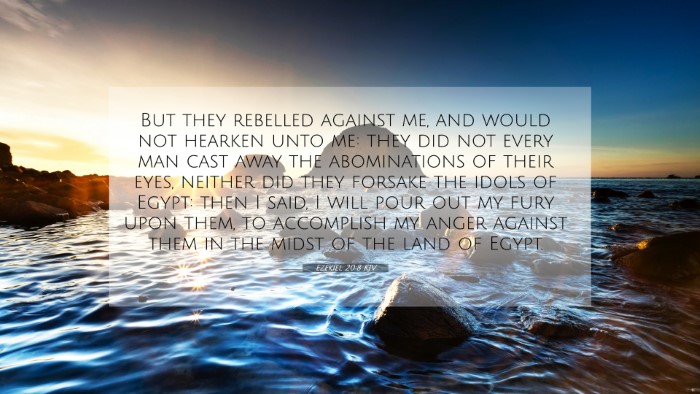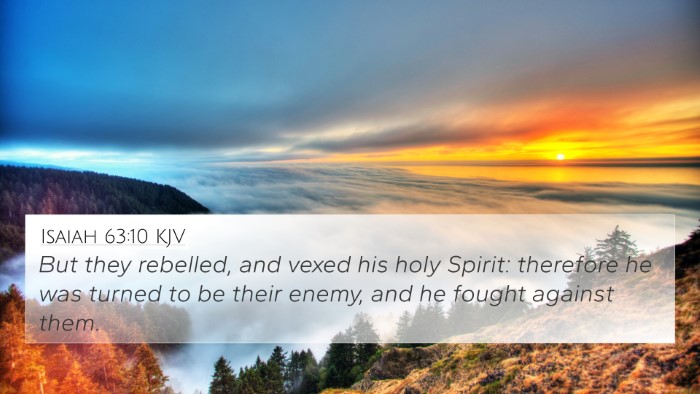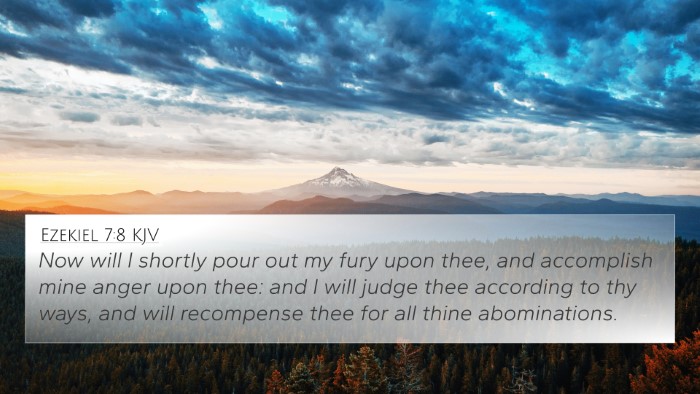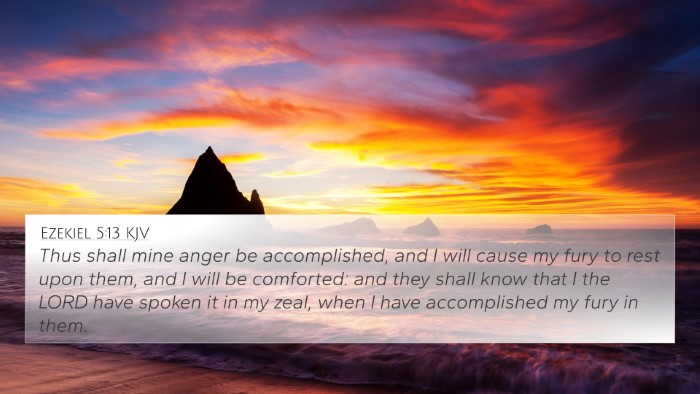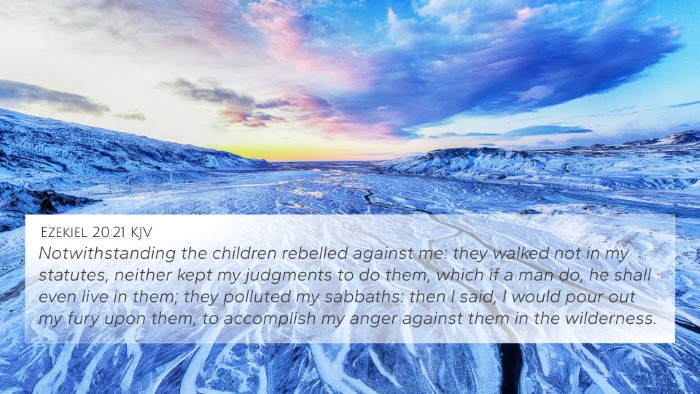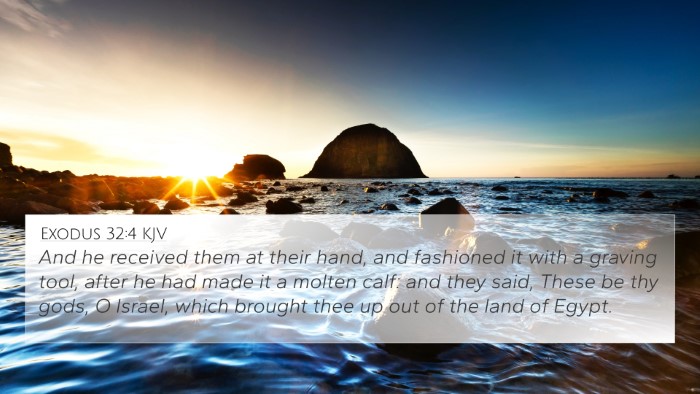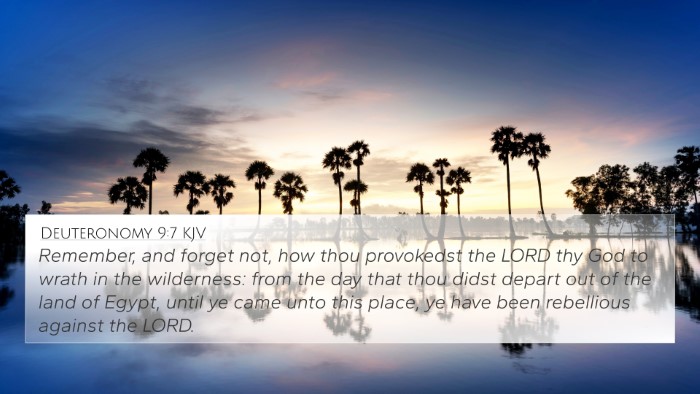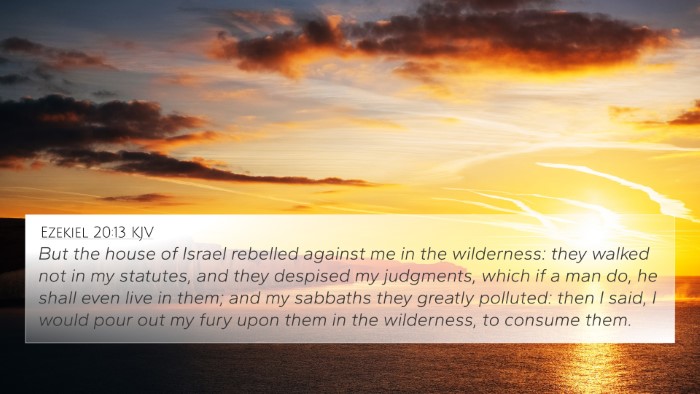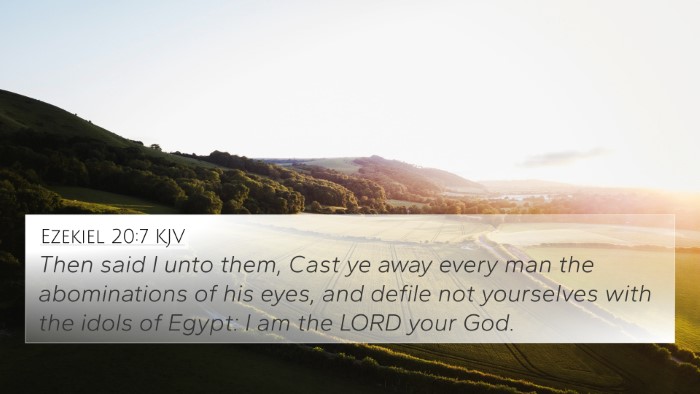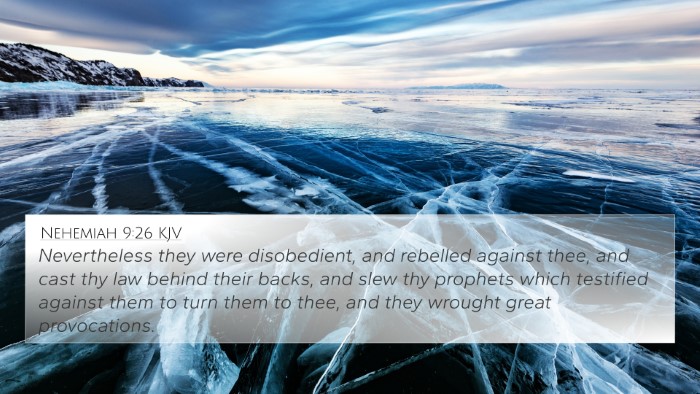Ezekiel 20:8 - Summary and Analysis
Bible Verse: "But they rebelled against me, and would not hearken unto me: they did not every man cast away the abominations of their eyes, neither did they forsake the idols of Egypt: then I said, I will pour out my fury upon them, to accomplish my anger against them in the midst of the land of Egypt." (Ezekiel 20:8 KJV)
Meaning and Interpretation
The verse from Ezekiel 20:8 reflects God's feelings towards the persistent rebellion of the Israelites against His commandments. Despite God's guidance and mercy, the people chosen to be His special nation repeatedly turned away from Him, demonstrating a hard-hearted nature.
Key Themes
- Rebellion Against God: The verse emphasizes Israel's continuous defiance. Matthew Henry notes that their rebellion is not just a simple act of disobedience, but a direct affront to God.
- Idolatry: The idols of Egypt mentioned in the verse refer to the pagan practices that the Israelites embraced. Albert Barnes points out that this indicates a failure to resolve their spiritual conflict and departure from true worship.
- God’s Judgment: The mention of God's anger and fury indicates that there are consequences for turning away from Him. Adam Clarke explains that God’s decisions are rooted in His justice and righteousness.
Cross References
This verse connects to several others, illustrating inter-Biblical dialogue concerning rebellion, idolatry, and divine judgment:
- Exodus 32:9-10: God's observation of Israel’s stiff-necked nature in the context of the golden calf.
- Jeremiah 7:24-26: The continuous disobedience of the people who refuse to listen to the word of the Lord.
- Romans 1:21-23: Reflects on humanity’s rejection of God’s truth, paralleling the Israelites’ idolatry.
- Ezekiel 16:30-34: A prophetic critique addressing the unfaithfulness of Jerusalem likened to an adulterous wife.
- Isaiah 65:2: God's outstretched arms to a rebellious people who walk in ways not good.
- Hosea 4:12: The people are depicted as consulting idols, indicating their reliance on false gods.
- Acts 7:39: Stephen recounts Israel’s disobedience in the face of God's providence.
Comparative Biblical Analysis
This verse and its implications extend beyond the narrative of Ezekiel, raising connections within the Biblical texts. Through comparative analysis, one can see how the themes of idolatry and rebellion recur throughout scripture.
Understanding Rebellion
Understanding Ezekiel 20:8 invites readers to explore the broader meanings of rebellion in scripture. The concepts discussed in verses like 1 Samuel 15:23 (rebellion is as the sin of witchcraft) can deepen our appreciation of the seriousness of forsaking God.
Idolatry’s Impact
Furthermore, the reference to Egyptian idols prompts a juxtaposition against texts in the New Testament, specifically 1 John 5:21 ("Little children, keep yourselves from idols"). This shows the continuity of the message against idolatry.
Biblical Thematic Connections
The themes in Ezekiel 20:8 resonate strongly with discussions around sin, judgment, and mercy in both the Old and New Testaments:
- Thematic Study: The recurring theme across various books illustrates God's consistent stance against sin.
- Judgment vs. Mercy: The juxtaposition of divine judgment in Ezekiel fits within the narrative of God's mercy, as seen in the parables of Jesus.
Tools for Bible Cross-Referencing
To fully examine the implications of Ezekiel 20:8, tools for Bible cross-referencing can be beneficial:
- Bible Concordance: Central for finding related verses across scripture.
- Bible Cross-Reference Guide: A resource that helps navigate through various connections between verses.
- Bible Reference Resources: Books and compatibility software that detail inter-Biblical relationships.
Conclusion
In essence, Ezekiel 20:8 stands as a poignant reminder of the consequences of rebellion against God. Through comparative analysis and cross-referencing, readers can appreciate the interconnectedness of Biblical themes regarding human disobedience and divine justice. The utilization of various tools for Bible cross-referencing enhances one's understanding of these themes as they connect with both the Old and New Testaments.
Ultimately, exploring Ezekiel 20:8 within the broader context of scripture enriches one's spiritual journey and comprehension of God's will.
